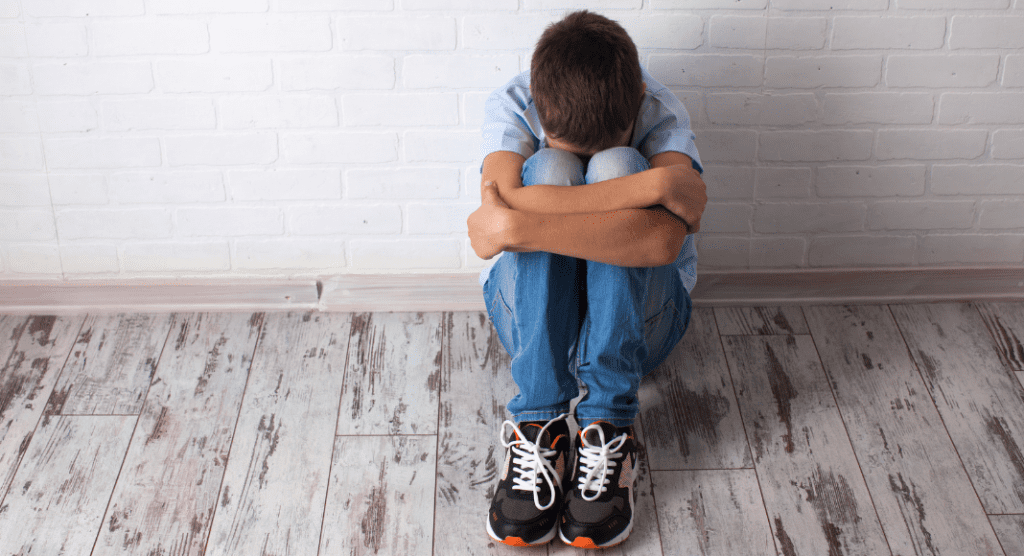 My son was close with both of his grandfathers. When he was in first grade, they both passed away unexpectedly. They died seven weeks apart from each other. We hadn’t yet finished grieving for the first death when the next occurred. My son wondered, why so soon after Papa George died did Grandpa die, too?
My son was close with both of his grandfathers. When he was in first grade, they both passed away unexpectedly. They died seven weeks apart from each other. We hadn’t yet finished grieving for the first death when the next occurred. My son wondered, why so soon after Papa George died did Grandpa die, too?
This past year, Grandma, my mom, died. Not so unexpectedly. She’d turned down radiation treatments and we watched her body and mind deteriorate for the last six months or more. My son was 15.
There have been a lot of sad days. Really sad days. For me and for my son. Often he is the more honest of us. One night at dinner he asked me if I would take him to the cemetery the next day. The next day was a school day. The cemetery is a hundred miles away. But I said yes. I don’t know how many parent excused absences he has left this year, but this was a worthy one.
I’ve also said yes to other things he’s asked when he’s been thinking about his grandparents. I’ve found it supports my grieving, too. Some things aren’t just soul-fulfilling; some things turn out to be lots of fun. In an effort to help my son, I’ve come up with different ways to help my son grieve.
Here are six ways I’m helping my son grieve.
1. We celebrate their birthdays
We have a small family. There are just the three of us; me, my husband, and our son. We have no extended family in town. Why not keep celebrating the people we love? Most of the time we talk about how old they’d be and what they liked to do, and what they liked to eat. We may even go somewhere that we celebrated with them when they were alive.
And sometimes we go the silliest selfish route and don’t. By that I mean that this year, my son asked if we get sushi for Grandma’s birthday. “But Grandma didn’t like sushi,” I said. And he said, “I know, but I DO.” And with that we belly laughed. We also treasured the fact that Grandma would’ve been happy making him happy.
2. We visit their gravesites
The reason my son knows that going to the cemetery might be soothing to him is because we’ve done it before. Heck, over Christmas break we took a detour and went to Papa George’s gravesite in a place that is about as rural Mississippi as you can get in my book. We’ve gone to gravesites of great grandparents and, more than that, he has researched online too. It’s not really my thing. But I’m game to support it. And it seems to make an only child feel like he’s grounded, has roots.
3. We talk to them
Yes, I said we talk to them. When my mom was sick, she lost the desire, and then ability, to talk on the telephone weeks before she fully left us. My son continued to send her texts. When I finally canceled her cell phone service, he continued. Just this past week that number’s been given to a stranger. So that’s come to an end. But he’s written letters too. Writing a letter is a powerful tool, even when the letter can’t be mailed.
4. We talk about them
I will never forget the time that my son and I were in tears, near sobbing, about my mom. The loss was so fresh. There, on the coffee table, was a photograph of her, and we started to talk to it. “We miss you, Grandma.” But then moved on to starting to talk like her. “Well, you know what Grandma would say if she was here… ” And then we even started imitating her voice, her cadence, her intonations, not just her phrases. Eventually, there were belly laughs. It is so good to know, and have been known, so well.
5. We admit their failings
None of these beloveds were perfect. No one is. I’ve been around folks who would be ashamed of speaking ill of the dead, but sometimes you just have to do it. It’s true. It’s OK to say, “I didn’t like it when Grandpa did…” It’s OK to clarify your own identity and independence. “Grandma didn’t like it when I said this, but …” In our house, all sorts of grief processing is allowed. I wish a lot of things had been different. Admitting such has brought some real healing to me. Families are complex.
6. We use the things they left us
Both my parents are gone and, since I’m an only child, I had a house full of stuff to go through. Some things of theirs I especially added to our home. There are a few paintings on our walls now that were in my parents’ home since I was a child. I use a few of mom’s dishes. Our son finally inherited Grandpa’s recliner that he’d been wanting for half his life.
The Christmas tree, their artificial one, had ours and their ornaments on it this year. It was full. And I placed a framed photograph of them underneath amongst the wrapped presents. My best friend made a quilt from my mom’s old clothes. The underside is the last comfy robe she wore often. It’s like we almost feel her.
I am not glad they are gone. But I am glad that my son has helped me know how to grieve well.














